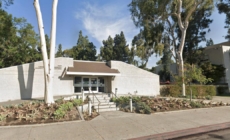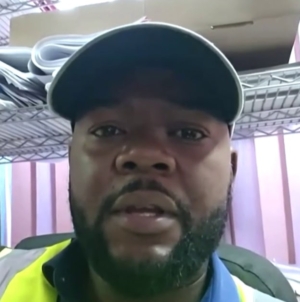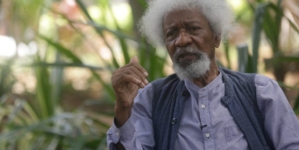-
Exhibitions and Lectures Await Visitors at Budapest Contemporary Jewelry Week - 10 mins ago
-
Aidan Hutchinson, Lions Agree to Extension With Record Guaranteed Money - 11 mins ago
-
Police investigating death of ‘full-term infant’ found near USC campus - 30 mins ago
-
Two Earthquakes Strike the Coast of Oregon Today: What to Know - 32 mins ago
-
Nvidia becomes the world’s first $5 trillion company, buoyed by AI boom - 33 mins ago
-
New Study Proposes Advanced Air Quality Assessment to Protect Public Health - 44 mins ago
-
Trey Yesavage’s Unusual Arm Angle Has Given Blue Jays Rookie An Advantage - 55 mins ago
-
World used record amount of fossil fuels last year, scientists say - about 1 hour ago
-
China Tries To Cover Up Toxic Mining Disaster: WSJ - about 1 hour ago
-
Stray Cats cancel fall tour due to Brian Setzer’s ‘serious illness’ - about 1 hour ago
How Hospital Internacional de Colombia Impacts Latin American Health Care
In every health system in the world, hospitals do more than save lives: They also train those who will one day be responsible for doing so. The responsibility of a medical institution does not end at the clinical act; in many cases, it begins in a classroom, a hospital corridor or a conversation between generations of physicians. Educating professionals is perhaps the most silent and transcendent legacy of a hospital.
For decades, in Latin America, we have faced a common challenge: how to ensure that knowledge is not confined to a few places but reaches those who need it most. In this mission, institutions such as the Hospital Internacional de Colombia (HIC) have embraced a role that goes beyond care. We do not only treat patients; we train the human talent today who will carry hope back to their own communities tomorrow. It is an ethical commitment—not only a technical one—to prepare physicians capable of practicing with science, but also with humanism and social responsibility.
Today, we are an accredited university hospital and each year we receive nearly 1,000 students of medicine, nursing and other health sciences. They arrive from different regions of Colombia, as well as from countries including Brazil, Chile, Costa Rica, Mexico and Peru. They seek a form of learning that goes beyond technique. They learn to listen, to make decisions under pressure, and to understand the dignity of the patient.
This academic vocation was recognized by the Government of Colombia with the highest certification granted to teaching institutions, confirming that we meet superior standards in care, research and education. That recognition does not belong to the hospital, but to those who have made teaching an additional service to the community: the patients who share their stories, and the physicians who accompany each shift with judgment and humanity.
To sustain this model, we rely on an environment designed to care and educate simultaneously. More than 60 medical specialties, 20 high-complexity operating rooms and the largest ICU in the country coexist with simulation centers, research laboratories and clinical platforms based on artificial intelligence. Technology here is not displayed for show but placed at the service of academic rigor and patient safety.
If medicine heals, education transforms.
That commitment has earned international recognition. Appearing among the best hospitals in Latin America or receiving the Global Five Stars rating from Newsweek and Statista is not an objective in itself; it is the consequence of understanding that quality must be taught, not only delivered. Our greatest achievement lies in those physicians who, after training here, return to their regions and reduce gaps where no specialists previously existed.
Because if medicine heals, education transforms. And in Latin America, where health challenges are profound, hospitals that educate also carry the duty to change realities.
From Hospital to Academic Center for a Continent in Search of Specialists
This transformation is not an abstract concept: at HIC, it has become structure, program and profession. Our hospital has developed one of the most comprehensive clinical and teaching ecosystems in the region. From interventional cardiology to neurosurgery, encompassing oncology, orthopedic surgery, urology, pediatrics and critical care, our training environments cover the entire cycle of disease — and the entire cycle of learning.
The students who walk through our doors do so thanks to 16 teaching-service agreements, which allow future physicians to learn not only from books, but in front of real patients within real teams, facing real decisions.
In Latin America and the Caribbean, health systems face a silent crisis of human capital. A recent report by the Pan American Health Organization (PAHO) warns that 14 of the region’s 39 countries do not have enough physicians and nurses to meet basic care needs and that, without urgent action, the deficit could range between 600,000 and 2 million health professionals by the year 2030. This structural gap seriously limits access to highly specialized medical care and forces many countries to rely on training centers abroad, creating imbalances in both quality and equity.
Courtesy Hospital Internacional de Colombia
At HIC, training has always been part of our identity. For years, physicians have learned here in wards, operating rooms and critical care units, guided by our teams. This year, we took a decisive step: We opened our first own residency programs in strategic areas such as surgery, gynecology, pediatrics, orthopedics and anesthesiology. This is the beginning of a broader academic project. Our vision is clear: to develop between 45 and 50 specialized medical training programs, transforming HIC into a clinical campus where Latin America can train its future specialists without having to cross oceans.
It is not merely about growing but about responding. In the field of advanced life support, for example, HIC has long been a Latin American reference center in ECMO (extracorporeal membrane oxygenation), a therapy reserved for the most critical cases. That clinical experience, far from remaining solely in the care setting, has become an educational platform. Through the Fundación Universitaria FCV—the educational nucleus of our institution—we operate one of the few advanced ECMO programs in the region, where intensivists, cardiologists and anesthesiologists train in real-life scenarios within our Cardiovascular Institute.
What we offer is not simply an academic program, but the consolidation of a clinical and teaching model recognized internationally. Our ECMO Center of Excellence, accredited at the Platinum level by the Extracorporeal Life Support Organization (ELSO), has enabled the training of teams from national and foreign hospitals. It is this integration—between care expertise, global accreditation, and teaching capacity—that has established us as a regional reference in this vital support therapy.
The same holds true in the most complex surgical field of the digestive system. We have launched the Advanced Training in Hepatopancreatobiliary (HPB) Surgery, a two-year program with direct practice at HIC. This subspecialty—which for years compelled surgeons to seek training abroad—can now be pursued in Colombia under international standards.
In 2026, the first HPB fully trained in our country will graduate from the program, recognized by the International Hepato-Pancreato-Biliary Association (IHPBA). This is not only an academic achievement: it is the capacity to treat, right here, complex pathologies of the liver, pancreas and biliary tract, strengthening specialized care in Latin America without relying on training centers in other continents.
Medical advancement within a high-complexity hospital cannot be confined to what happens inside its walls. That is why, through our membership in the Mayo Clinic Care Network, our teams and residents have access to international platforms, where highly complex cases are discussed with world-renowned experts.
This access is not a technological privilege, but an academic principle to learn from the best in order to care better. What was once reserved for centers in the United States or Europe is now part of the daily learning routine in Bucaramanga. Bringing that knowledge southward is not an institutional achievement, but a commitment to a region that needs specialists capable of making the right decision at the most difficult moment.
“Training for the Care of Life”
Training in health care does not begin or end with residencies or specialties. At HIC, we have chosen to extend this commitment to earlier stages, through a project called “Training for the Care of Life,” aimed at high school students. Through this program, 10th and 11th grade students from schools in the region gain free access to technical education in areas such as nursing assistance and administrative support, integrating at a very early age into real care settings. We are not only seeking future physicians. We seek to awaken early vocations in those who, even before choosing a profession, can learn that to care is also to serve.

Under this leadership, dozens of young people have found a new academic and professional path. Beyond improving their employment opportunities, this process fosters a profound sense of social responsibility and commitment to life, especially in communities where access to higher education is limited. This initiative—unique in the region—has enabled the formation of a new generational pipeline for health care human talent, ensuring that medical excellence does not rely solely on high-level specialists, but also on a solid base of caregivers and support staff capable of sustaining the system from its foundations.
The Mission of a Teaching Hospital: To Multiply Knowledge, Not Keep It
A hospital that teaches must also share, challenge and update the knowledge it produces. That is why, at HIC, we have transformed our auditoriums, conference rooms and simulation centers into venues of ongoing academic exchange.
Throughout the year, we organize congresses, symposia and scientific meetings that bring together national and international specialists in disciplines such as cardiology, surgery, oncology, neurosciences, critical care, and hospital management. These are spaces where our physicians, residents, and students interact with global leaders, discuss real cases, and access new scientific evidence without leaving the country.
In a region where many professionals cannot travel to the world’s leading academic centers, bringing knowledge to the territory is as important as producing it. This too is a form of equity: building science without borders, from a hospital that belongs to Latin America as much as to its city.
Training in health care is perhaps one of the most delicate responsibilities an institution can assume. It is not only about transmitting knowledge but about instilling judgment to decide over human life. At HIC, we understand that our duty does not end in caring for patients; it begins in preparing those who will one day hold that same responsibility in their hands.
That is why we educate at every level: from the student who discovers their vocation in a school classroom to the specialist who faces a highly complex case. If medicine can save one life, education can save many more.
Latin America does not only need frontier medicine. It needs institutions that multiply knowledge, that open paths, and that restore hope where a specialist, a rural doctor, a first responder is missing. That is—and will remain—our commitment. Caring is not an individual act: It is a responsibility shared with the generations to come.
Dr. Victor Raúl Castillo Mantilla is a member of the Newsweek CEO Circle, an invite-only executive community of subscribers.
Source link































